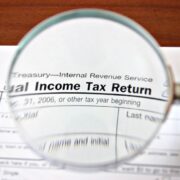If you are a regular news watcher, you have undoubtedly heard something about a criminal suspect being let out on bail. But what exactly does that mean? Read on for answers to the top questions about the United States’ cash bail system.
What is Bail?
Bail is an amount of money, determined by a judge, that the court accepts as insurance that a defendant will return to court for future hearings. Because many defendants cannot afford to pay the full amount of cash bail upfront, many instead turn to bail bonds near me Allentown PA.
How Does the Judge Determine the Bail Amount?
Judges have leeway to either deny bail, meaning the defendant will be remanded to prison through the remainder of his trial process, or to set a bail amount. Judges take a number of things into account when setting bail. Typically, the amount will be higher for more serious criminal offenses and for individuals who are deemed a potential danger to the public. A judge may also set a higher bail amount if the defendant is considered to be at high risk for fleeing from justice.
How is Bail Paid?
Bail can be paid to a court in full in cash. Certain courts may accept real property, such as a home or land, as collateral in lieu of cash. Most defendants, however, depend upon a bail bondsman to issue a bail bond. The bondsman charges a fee, usually somewhere around 10% of the total bail amount, to provide a surety bond to the court. This bond allows the individual to remain free on bail throughout his trial process. The defendant would secure the bond with collateral. In the event that the defendant breaks the terms of his bail bond, the collateral is then seized by the court.
When an accused person out on bail breaks his bond, he may also be remanded to the custody of the court to serve time in jail while awaiting trial.













Comments